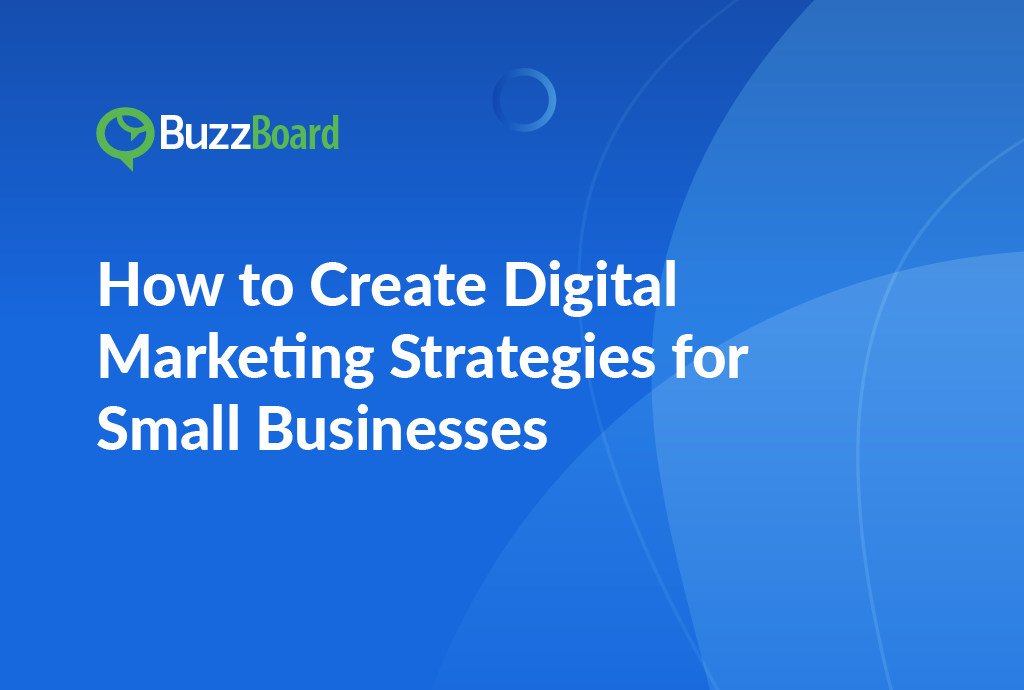As media consultants and marketing agencies, you are catering to the unique needs of small and local businesses night and day. Therefore, it’s imperative to craft personalized digital marketing strategies that seamlessly mesh with the needs and desires of your small business clients. From establishing a compelling online presence to navigating social media landscapes and optimizing search engine visibility—such facets are indispensable towards empowering small business clients to not only compete but excel in the digital arena.
This blog will guide you through the process of creating effective digital marketing strategies tailored specifically for small businesses, ensuring success in both selling and fulfilling your digital marketing services.
The Essence of Digital Marketing for Small Businesses
Digital Marketing Fundamentals
Let’s first ensure that you have a solid understanding of digital marketing and offer a wide range of services optimized for small and local businesses. In short, it encompasses a range of online tactics, including social media marketing, search engine optimization (SEO), content marketing, email marketing, and more. For small businesses, a combination of these tactics tailored to their unique needs can make a significant impact.
Significance of Digital Marketing for Small Businesses
Small businesses often operate on limited budgets, making it essential to maximize the impact of every marketing dollar. A well-thought-out digital marketing strategy allows these businesses to reach a broader audience, engage potential customers, and ultimately drive sales—all while optimizing costs.
Key Steps in Crafting a Digital Marketing Strategy for a Small Business
1. Know Your Audience
Identification of the target audience is crucial. Small businesses often eye for niche markets or local communities, so understanding the demographics, interests, and online behaviors of the audience is essential. Leverage this information to personalize marketing efforts.
2. Conduct a Digital Audit
Before proposing any solutions, conduct a digital audit of the small business’s online presence. Evaluate their website, social media accounts, and online reviews. Identify areas for improvement and use this information to tailor your pitch.
3. Define Clear Objectives
Work closely with the small business owners to define clear and realistic marketing objectives. Whether it’s increasing website traffic, generating leads, or enhancing brand visibility, having well-defined goals will guide the entire strategy.
4. Choose the Most-Fitting Digital Channels
Given the limited resources of small businesses, it’s important to focus on the most effective digital channels. Consider the nature of the business and its target audience when choosing between social media platforms, search engines, and other online channels.
5. Implement SEO Best Practices
Optimizing for search engines is paramount for small businesses aiming to increase online visibility. Integrate relevant keywords naturally throughout website content along with meta tags and descriptions. Local SEO is particularly crucial for businesses with a physical presence.
6. Content Is King
Create high-quality, relevant content that resonates with the target audience. Regularly update the website with blog posts, articles, and other types of content that provide value. Content marketing not only enhances SEO but also helps the business to gain an authority in its industry.
7. Leverage Social Media Effectively
Social media is a powerful tool for small businesses to connect with their audience. Locate the platforms with the highest audience activity and craft appealing content. Encourage interaction, respond to comments, and use social media advertising strategically.
Personalization: A Key Element in Digital Marketing Success
Tailoring Campaigns to Small Business Needs
One-size-fits-all approaches rarely yield optimal results for small businesses. Personalization entails adapting marketing campaigns to match the distinct needs and behaviors of the target audience. For media consultants and marketing agencies, the effective implementation of personalization requires understanding the intricacies of each small business client.
Maximizing Customer Data Usage
Gather and analyze customer data to uncover valuable insights into their choices and behaviors. This information can be put to use for crafting personalized marketing messages, exclusive offers, and engaging experiences that connect with the target audience. Implementing data-driven personalization ensures relevance and effectiveness.
Dynamic Email Marketing
Email marketing remains a potent tool for small businesses. Instead of generic mass emails, personalize content based on customer interactions, purchase history, and preferences. Opt for automated email campaigns to send targeted messages at the most opportune moments.
Geo-Targeting for Local Businesses
For local businesses, geo-targeting is a game-changer. Tailor advertisements and promotions based on the geographic location of the target audience. This ensures that small businesses connect with potential customers in their immediate vicinity, maximizing the impact of marketing efforts.
Customized Social Media Campaigns
Craft social media campaigns that speak directly to the interests and needs of the local community or niche market. Utilize platforms, like Facebook and Instagram for targeted advertising for reaching specific demographics. Personalized content fosters a sense of connection and loyalty among the audience.
Tips for Selling and Fulfilling Digital Marketing Services
Transparent Communication
Establish clear communication channels with your small business clients. Be transparent about the services you provide, the expected outcomes, and the investment required. Building trust from the start sets the stage for a successful partnership.
Educate Your Clients
Small business owners may not be well-versed in digital marketing. Take the time to educate your clients on the strategies you propose, the importance of digital marketing, and the expected ROI. Providing insights helps build confidence in your expertise.
Show Results with Metrics
Demonstrate the effectiveness of your digital marketing services by tracking and presenting relevant metrics. Highlight improvements in online visibility, website traffic, social media engagement, and ultimately, sales. Tangible results instill confidence and encourage long-term partnerships.
Flexibility and Adaptability
Digital marketing landscapes evolve rapidly. Be prepared to adapt strategies based on changing algorithms, industry trends, and the evolving needs of small businesses. Flexibility ensures that your services remain effective in dynamic environments.
Crafting a successful digital marketing strategy for small businesses requires a combination of industry knowledge, strategic planning, and a commitment to personalization. Please note, understanding the nuances of each client’s business is essential as you cater to them as their very own media consultants and digital agencies. By following the outlined steps and incorporating personalized tactics, you can create digital marketing strategies that set small businesses on the path to success. Keep evolving, stay informed, and empower small businesses to flourish in the digital age.







